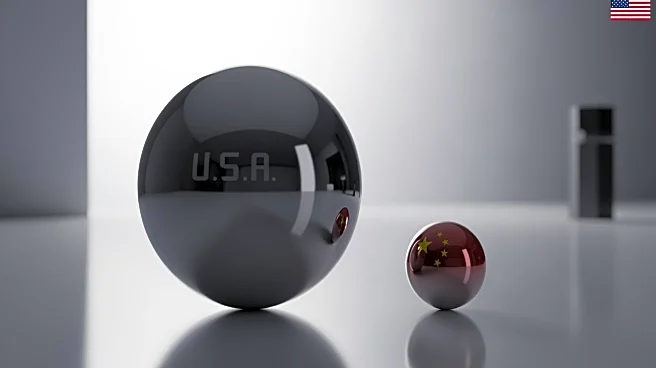What's Happening?
The United States and China have reached a temporary truce in their ongoing trade negotiations, particularly concerning the export of rare earth minerals. This development emerged from recent talks in Kuala
Lumpur, Malaysia, where both nations agreed on a framework to delay the implementation of threatened tariffs and restrictions. The agreement includes China resuming the purchase of U.S. soybeans and delaying its embargo on rare earth exports to the U.S. for at least a year. This truce is seen as a temporary measure, with a final deal expected to be discussed in an upcoming meeting between President Trump and President Xi Jinping in South Korea.
Why It's Important?
The temporary truce between the U.S. and China is crucial as it provides a reprieve from escalating trade tensions that have significant implications for global markets. Rare earth minerals are vital for various industries, including technology and defense, making their availability a strategic concern for the U.S. The agreement helps stabilize markets by providing short-term certainty and averting immediate economic disruptions. However, it also highlights the ongoing dependency of the U.S. on Chinese rare earths, underscoring the need for diversifying supply chains to reduce vulnerability to geopolitical pressures.
What's Next?
The upcoming meeting between President Trump and President Xi Jinping will be pivotal in determining the long-term direction of U.S.-China trade relations. While the current truce provides temporary relief, both nations will need to address underlying issues to achieve a more comprehensive and lasting agreement. The U.S. may continue efforts to secure alternative sources of rare earths to mitigate future risks. Additionally, the outcome of these negotiations could influence broader economic policies and trade strategies, impacting industries reliant on these critical materials.








